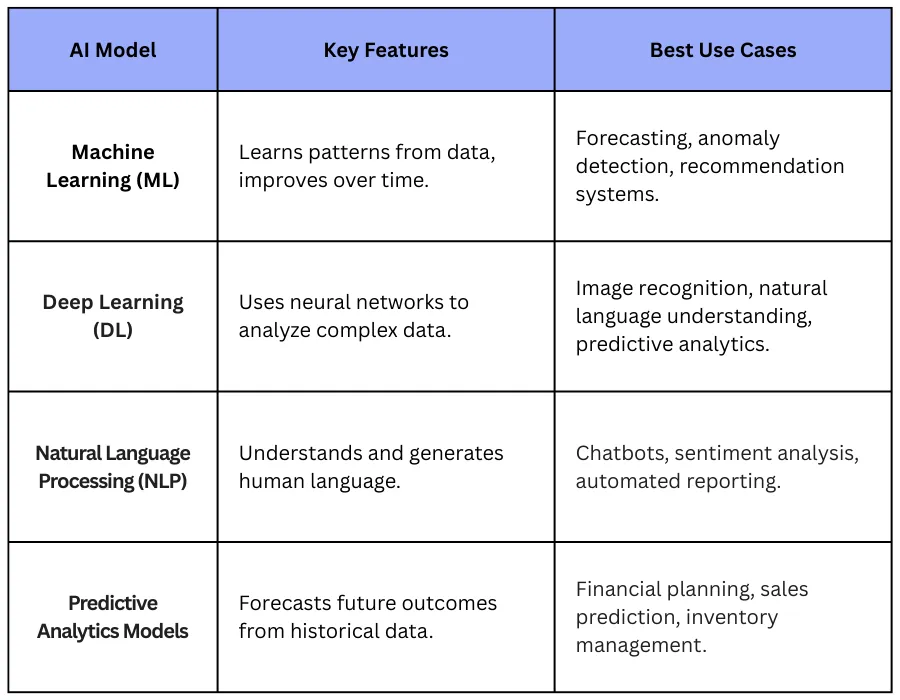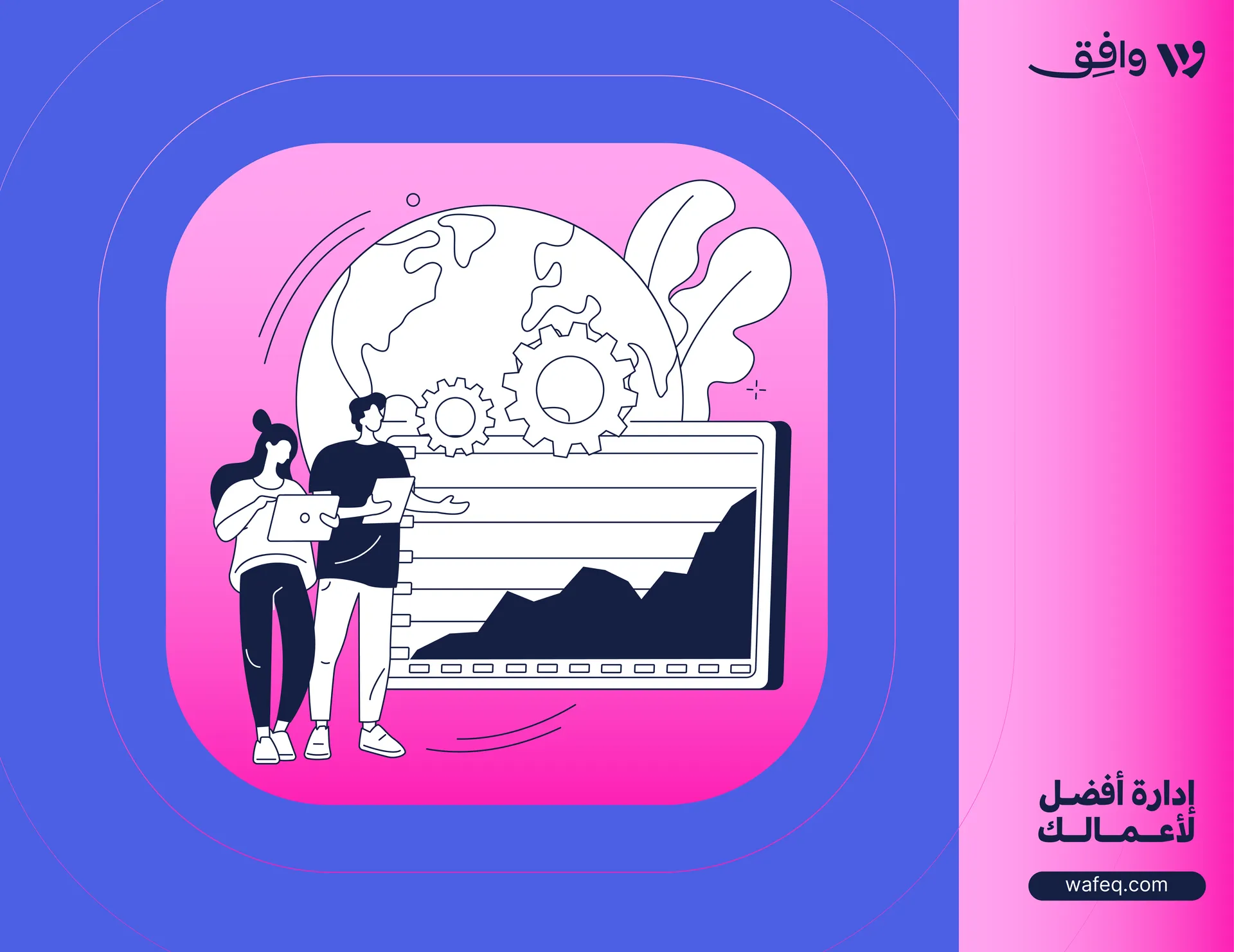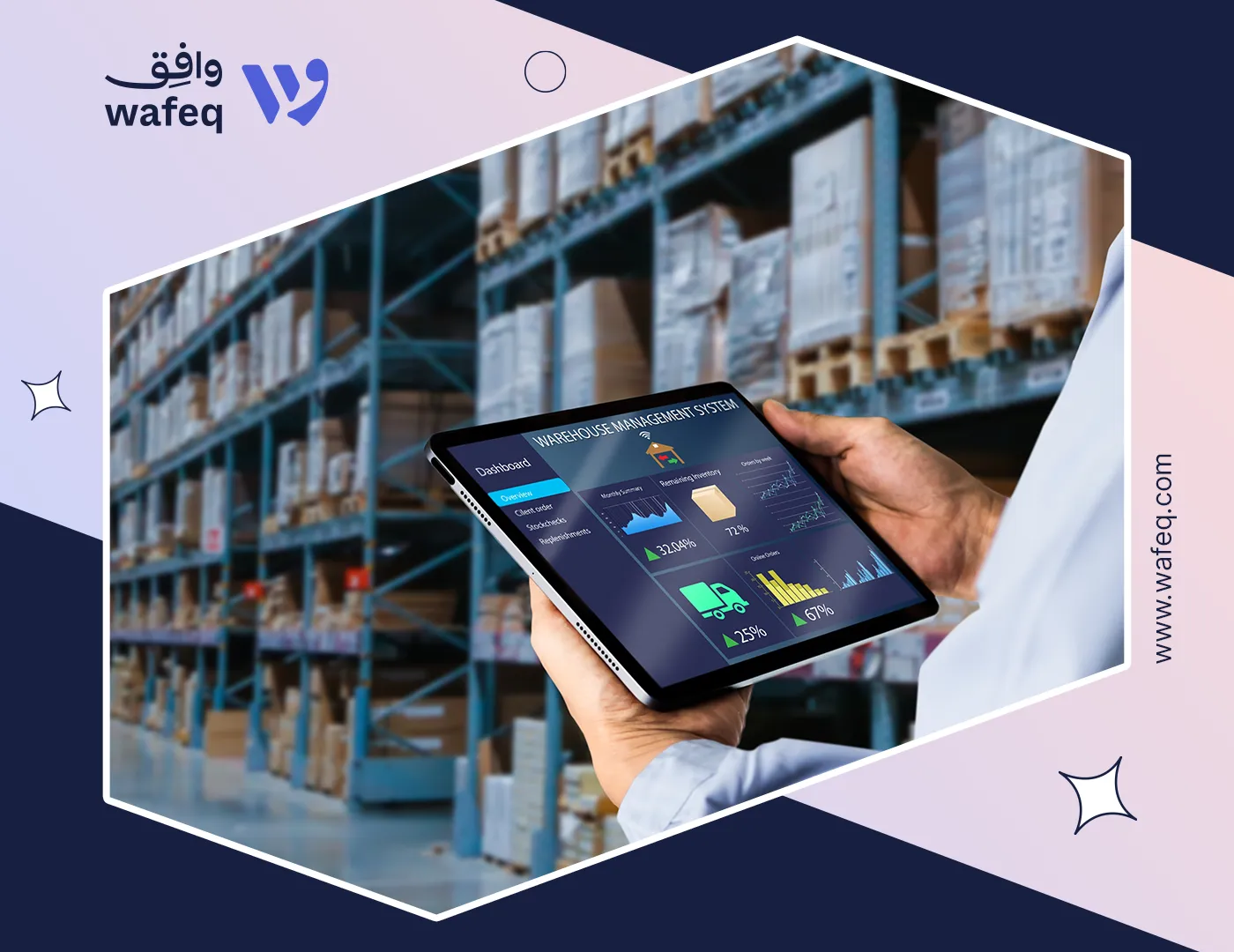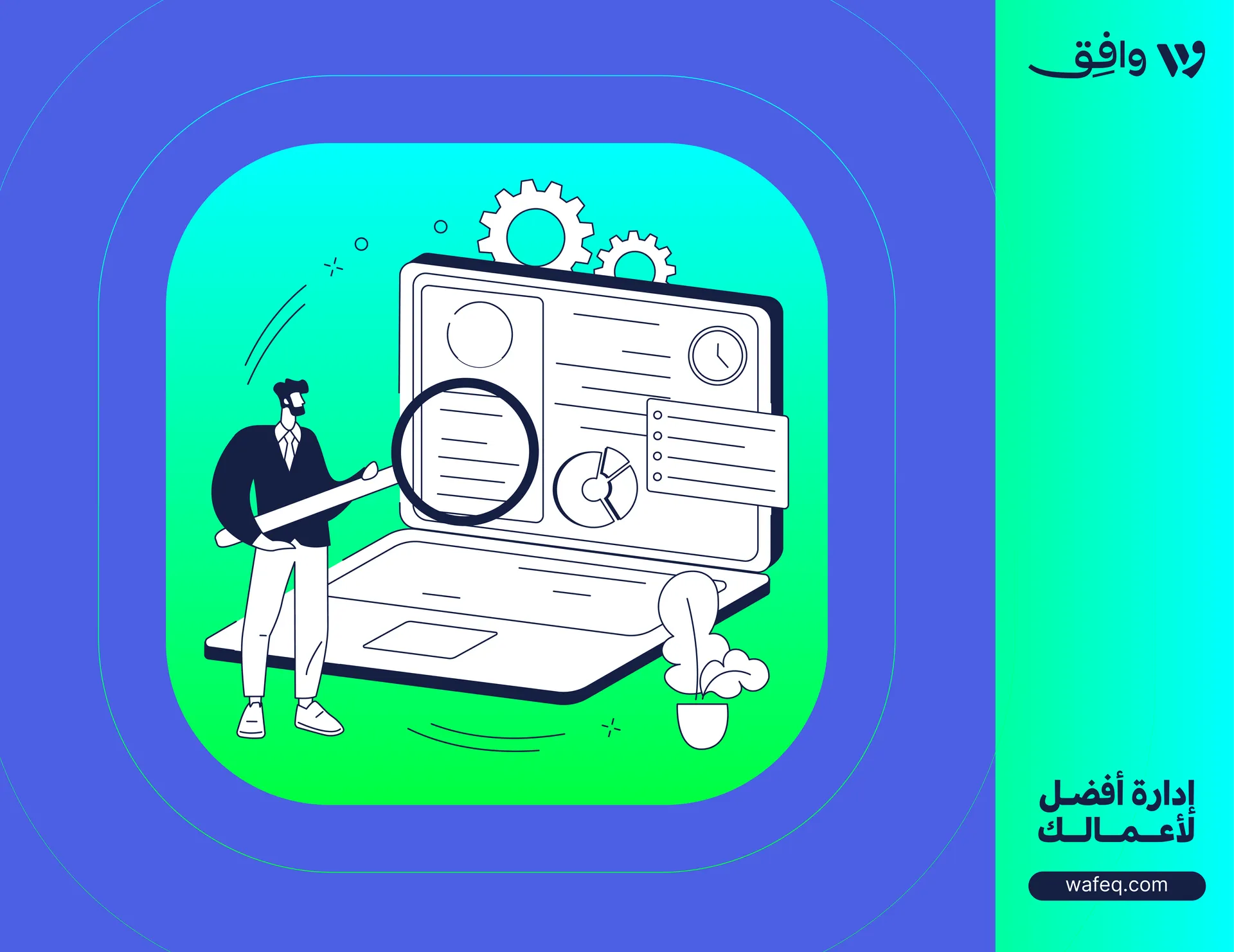How to use AI models in business, Which to Choose, and Why

Businesses today generate massive amounts of data every day, from customer interactions to financial transactions. AI models have the power to analyze this data, uncover patterns, and provide actionable insights faster and more accurately than traditional methods. Leveraging AI effectively can transform operations, improve decision-making, and create a competitive edge in any industry.
This article explains how AI models can be applied in businesses, which ones are most suitable, and why adopting them is essential for sustainable growth.
What Are AI Models?
Artificial Intelligence (AI) models are computer programs designed to mimic human intelligence by learning from data, recognizing patterns, and making predictions. These models can process large datasets, identify trends, and automate complex decision-making processes that have been previously done manually.
Types of AI Models
AI models can identify inefficiencies, detect fraud, enhance customer experiences, and optimize business strategies, making them a critical tool for modern companies. The most important models include:
- Machine Learning (ML): Enables systems to learn from data and improve performance over time without explicit programming.
- Deep Learning (DL): A subset of ML that uses neural networks to analyze complex patterns, often used in image and speech recognition.
- Natural Language Processing (NLP): Focuses on understanding, interpreting, and generating human language. Used in chatbots, translation, and text analysis.
- Predictive Analytics Models: Analyze historical data to forecast future outcomes, essential in finance, marketing, and operations.
Why AI Models Are Important for Businesses
AI models provide today the tools for businesses to optimize processes, gain insights, and stay competitive. Understanding why AI is essential helps companies prioritize the right strategies for implementation.
- Efficiency and Automation AI models can automate repetitive and time-consuming tasks, as data entry, report generation, and invoice processing. This reduces errors, saves time, and allows employees to focus on strategic tasks that require human judgment.
- Data-Driven Decision Making AI models provide actionable insights that guide business decisions by analyzing large datasets quickly. From identifying market trends to evaluating customer behavior, AI enables companies to make informed choices backed by data.
- Competitive Advantage Businesses that leverage AI can react faster to market changes, optimize operations, and deliver personalized customer experiences. Companies using AI gain a significant edge over competitors who still rely solely on manual processes.
- Risk Reduction AI models help detect anomalies, predict potential financial risks, and ensure compliance with regulatory requirements. This proactive approach reduces the likelihood of errors, fraud, and operational losses.
- Scalability and Growth AI-powered solutions can scale with business growth, handling larger datasets and more complex tasks without additional human resources. This flexibility supports long-term expansion strategies.
How to Use AI Models in Your Business
Implementing AI models in business operations can seem complex, but understanding the key applications makes integration easier. Companies can improve efficiency, decision-making, and overall performance by targeting areas where AI adds the most value. Key Applications of AI in Business:
- Customer Service AI-powered chatbots and virtual assistants handle routine inquiries, provide instant support, and improve customer satisfaction. Natural Language Processing (NLP) enables these systems to understand and respond in human-like language.
- Financial Forecasting and Analytics AI models analyze historical financial data to predict future trends, optimize budgets, and identify anomalies. This reduces errors, improves accuracy, and allows finance teams to make data-driven decisions.
- Inventory and Supply Chain Optimization AI predicts demand, monitors stock levels, and optimizes logistics. Businesses can reduce costs, prevent stockouts, and improve delivery times.
- Marketing and Sales Predictions Predictive AI analyzes customer behavior, segmentations, and purchase history to optimize campaigns, improve targeting, and increase conversion rates.
- HR and Payroll Automation AI tools can streamline recruitment, performance analysis, and payroll management, reducing administrative workload and ensuring compliance with labor regulations.
AI Integration Tips
AI Integration Tips
- Start with high-impact areas first.
- Ensure clean and structured data.
- Continuously monitor performance and refine models.
Which AI Models to Choose and Why
Selecting the right AI model is critical for maximizing business benefits. The choice depends on the company’s goals, available data, technical resources, and budget. Understanding each model's strengths and limitations helps ensure effective implementation. Factors to Consider:
- Business Goals: Identify the problems you want AI to solve—customer support, forecasting, fraud detection, or process automation.
- Data Availability: AI models rely on data. More quality data generally improves accuracy and performance.
- Budget and Resources: Consider the costs of licensing, infrastructure, and skilled personnel for model deployment.
- Complexity and Scalability: Choose models that align with the company’s technical expertise and future growth plans.
Popular AI Models for Businesses

How to Implement AI in Business
Successfully integrating AI into business operations requires careful planning and structured execution. Following a step-by-step approach ensures that AI delivers measurable value and aligns with organizational goals.
- Identifying the problem or opportunity The first step to implementing AI is identifying the problem or opportunity where AI can create the most value in your business. This might involve automating time-consuming manual tasks, improving customer engagement, or gaining deeper insights from financial data. A clear understanding of a specific business challenge ensures that AI adoption is targeted and effective.
- Gather and prepare the right data Since AI models rely on data for learning and predictions, businesses must ensure data is accurate, well-structured, and relevant. Financial records, sales transactions, customer histories, or operational data can all serve as inputs, but must be cleaned and organized before use.
- Choose the right AI model It is essential to choose the right AI model that matches your goals once the data is ready. For example, predictive analytics models may help forecast future trends, while natural language processing can enhance customer service. Selecting the right model depends on the business problem, available data, and desired outcomes.
- Testing and validation AI should not be rolled out company-wide without first confirming accuracy and reliability. By testing the model on a smaller scale or with historical data, businesses can ensure it performs well before full implementation.
- Scaling and monitoring performance AI is not a one-time setup; it requires continuous evaluation and fine-tuning as business needs and data evolve. By monitoring results and adjusting, businesses can maximize long-term value and maintain alignment with strategic objectives.
Example: AI in Finance and Accounting
Finance and accounting are data-intensive functions where accuracy, speed, and compliance are critical. AI models can transform these areas by automating routine tasks, improving forecasting, and providing actionable insights.
Example Applications of AI in Accounting
- Automated Financial Reporting AI tools can generate financial reports automatically, reducing manual effort and minimizing errors. Reports can be customized for departments, projects, or cost centers, providing a 360° view of business performance.
- Predictive Financial Analytics Machine Learning models analyze historical financial data to predict cash flows, budget needs, and potential financial risks. This allows finance teams to make proactive decisions.
- Fraud Detection and Compliance AI models can detect unusual patterns or transaction anomalies, helping companies prevent fraud and maintain regulatory compliance.
- Expense Categorization and VAT Reconciliation AI automates the classification of expenses and reconciles VAT efficiently, saving time and ensuring accuracy.
Read Also: How to Use ChatGPT in Bookkeeping?
How Wafeq Can Help using AI?
Integrating AI into finance and business operations requires the right tools and expertise. Wafeq offers AI-powered solutions to simplify accounting, enhance insights, and improve efficiency for businesses of all sizes.
Also Read: AI in Accounting: Automating Expense Categorization and VAT Reconciliation for Gulf Businesses
Wafeq AI Benefits for Businesses
By leveraging Wafeq’s AI solutions, companies can automate routine tasks, gain actionable insights, and make smarter business decisions with minimal effort. This is through:
- Automated Reporting and Analysis Wafeq generates financial reports automatically, offering real-time dashboards, project profitability insights, and cost center analysis for data-driven decisions.
- Expense Categorization and VAT Reconciliation AI-powered tools streamline expense tracking and automate VAT reconciliation, reducing errors and saving time.
- Predictive Financial Analytics Wafeq’s AI models forecast cash flows, budget needs, and financial trends, enabling proactive planning and strategy.
- Seamless Integration Easily integrates with existing systems and workflows, ensuring a smooth transition without disrupting operations.
- Free Migration Services Wafeq handles full migration from your old accounting software, allowing businesses to focus on operations rather than the technical switch.
- Security and Compliance Ensures data protection and regulatory compliance while providing AI-powered insights securely.
Read Also: Will AI Replace Accountants in the Future?
know more about:Future of Finance with AI: Wafeq x Kudwa on Real-Time Clarity.
AI models are no longer optional but are essential tools for modern businesses. From automating repetitive tasks to providing actionable insights and improving decision-making, AI empowers companies to operate more efficiently and competitively. By understanding the right models, implementation steps, and key applications, businesses can leverage AI strategically to drive growth, reduce risks, and stay ahead in a data-driven world.
FAQs about how to use AI models in business
What is the easiest AI model to implement for small businesses?
Machine Learning models that focus on predictive analytics or basic automation are often the easiest to implement. They require manageable amounts of data and can provide immediate business insights.
Can AI replace accountants?
AI is designed to assist, not replace, finance professionals. It automates repetitive tasks, reduces errors, and provides insights, allowing accountants to focus on strategic decision-making.
How much data do I need to start using AI in my business?
While more data improves accuracy, small businesses can start with historical financial and operational data. AI models can scale and improve over time when data becomes more available.
Are AI tools secure for sensitive financial information?
Not all AI tools are equally secure. Security depends on the provider, encryption standards, and compliance with data protection regulations. It’s crucial to choose reputable AI solutions, like Wafeq, that prioritize data security, follow industry standards, and ensure sensitive financial and business information is protected.
How do I choose the right AI model for my business?
Consider your business goals, available data, budget, and technical expertise. Start with high-impact areas, test models, and refine them as you go.
Automate routine tasks, gain actionable insights, and make smarter, data-driven decisions with Wafeq’s accounting solutions.
Automate routine tasks, gain actionable insights, and make smarter, data-driven decisions with Wafeq’s accounting solutions.



.png?alt=media)










